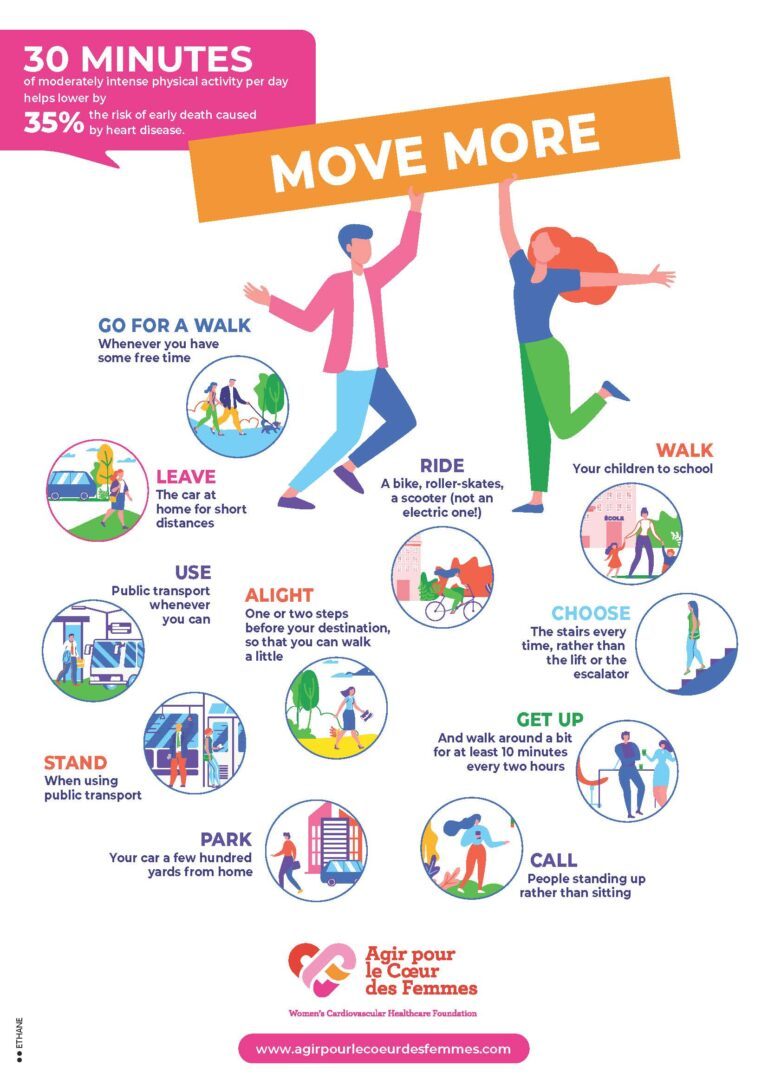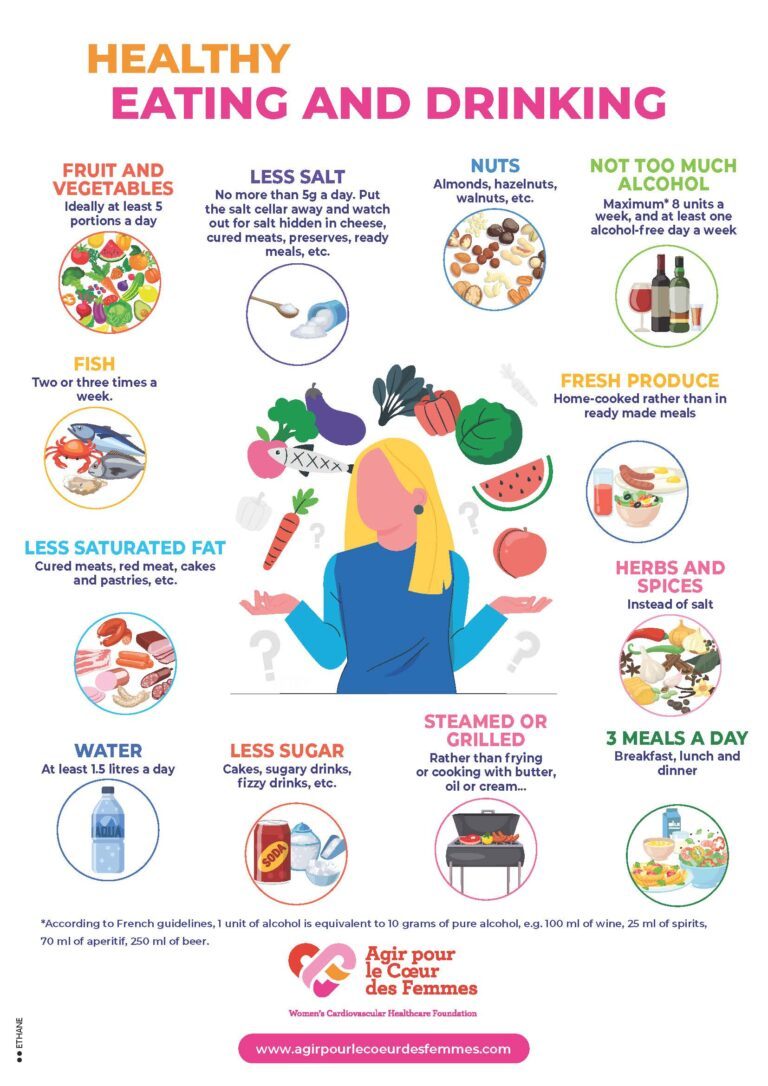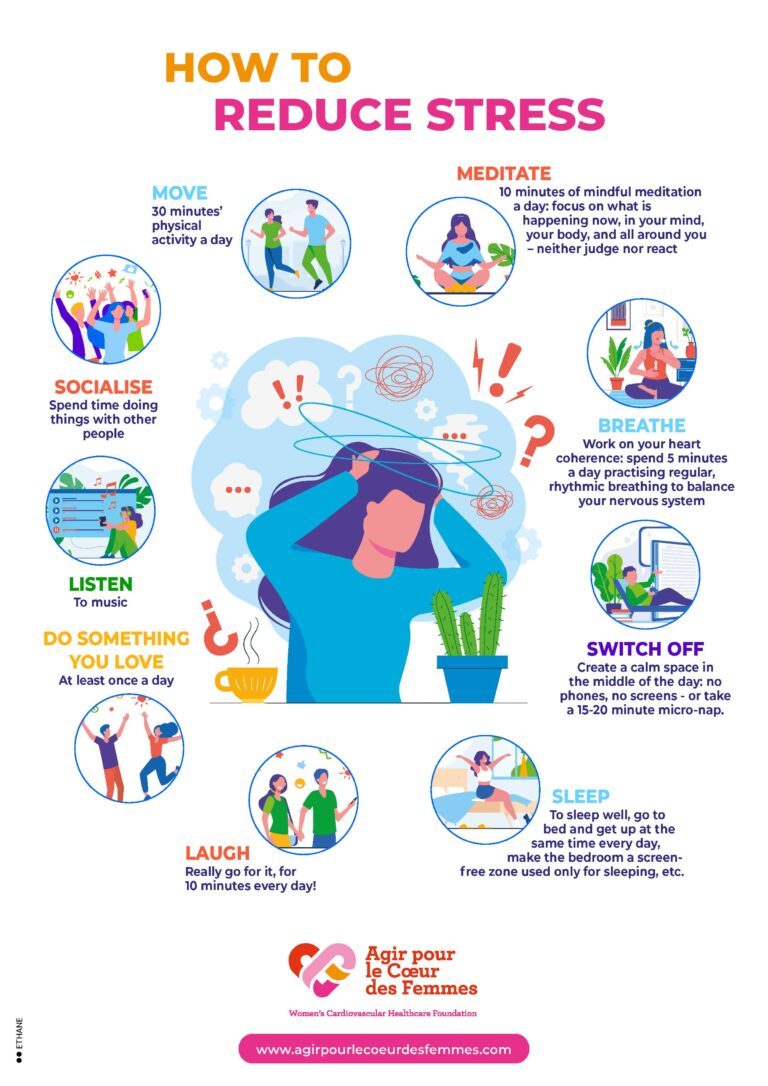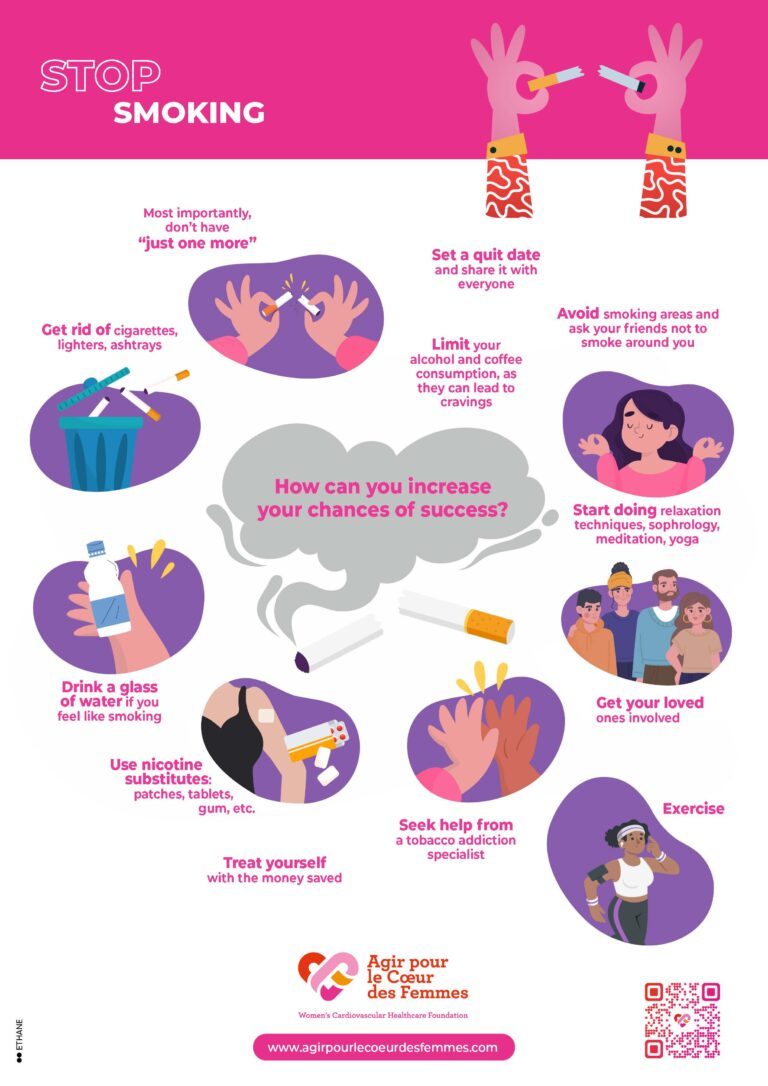Four essential tips to keep your heart healthy!
To keep your heart healthy over the long term, it’s important to adopt good habits on a daily basis. Through helpful illustrations, discover our key tips for looking after your cardiovascular health!
1. Move as much as you can

Moderate-intensity physical activity for at least 30 minutes, five times a week, considerably reduces the risk of cardiovascular disease. To do so, there’s no need to turn your daily routine upside down: simple habits can make all the difference.
Walk more, whenever you can; for example, when taking the kids to school, doing your shopping or walking your dog, or simply for better digestion after your meal. It’s also a good idea to take your bike, scooter or roller skates. Whatever you opt for, the most important thing is to keep moving. If you’re driving, park a few hundred metres from your home; if you’re taking public transport, get off one or two stops before your destination. And remember to take the stairs instead of the lift.
At work, avoid staying sedentary: move around to talk to your colleagues, stand up when making calls, and get up for at least 10 minutes every two hours!
2. Eat and drink healthy

A healthy diet, inspired by the Mediterranean diet, has also proven to have beneficial effects on cardiovascular health.
Foods rich in antioxidants, fibre, unsaturated fatty acids, vitamins and minerals are particularly recommended. On the menu for a healthy heart, we have: fruit and vegetables (at least 5 portions a day), fish two or three times a week (choose oily fish such as salmon or mackerel), oilseeds (almonds, walnuts) and pulses (lentils, chickpeas).
Avoid foods that are high in saturated fat, sugar and salt, and very processed; monitor your intake of cheese, cold meats, ready meals, pastries and cakes, as well as white bread and sandwich bread. Limit soft drinks, sugary drinks and alcohol (no more than 8 glasses a week, and go at least one day without), opt for water (at least 1.5 litres a day) and reduce your salt intake.
3. Manage your stress levels

Stress can have significant effects on your health and heart. Although it is inevitable, there are actions you can take to better manage it and mitigate its effects.
At least 30 minutes of physical activity a day will help reduce its effects on the body. A good night’s sleep, perhaps supplemented by a short nap (15-20 minutes), can contribute to your general well-being. Choosing the people you spend time with wisely, keeping a healthy social life, laughing every day and allowing yourself moments of pleasure are all effective ways of relieving pressure.
Hobbies such as reading, music or creative activities, as well giving yourself time to unplug, can help you maintain a personal balance. Finally, relaxation techniques such as breathing, cardiac coherence, meditation and sophrology can be helpful tools for calming the body and mind.
4. Quit smoking

Tobacco is one of your heart’s worst enemies. Quitting smoking can be beneficial at any age; after five years smoke-free, your risk of getting a heart attack reaches a level comparable to that of someone who has never smoked. Although quitting smoking is a true challenge, you can increase your chances of success through a few simple actions.
Some key first steps include setting a quit date, talking to friends and family about it and getting rid of anything that reminds you of cigarettes (lighters, ashtrays or packs). It is additionally recommended that you avoid typical smoking areas, moderate your alcohol and coffee consumption and drink a glass of water if the need to smoke hits. Support from friends and family, regular exercise, relaxation techniques and nicotine replacement products (patches, gum or tablets) can all help.
Finally, to increase the chances of success, it is strongly recommended that you seek the support of a health professional, such as a tobaccologist.
By incorporating these four tips into your daily routine, you can work towards keeping your heart healthy and achieving lasting well-being.
